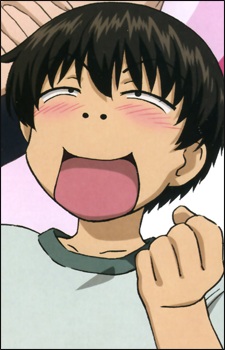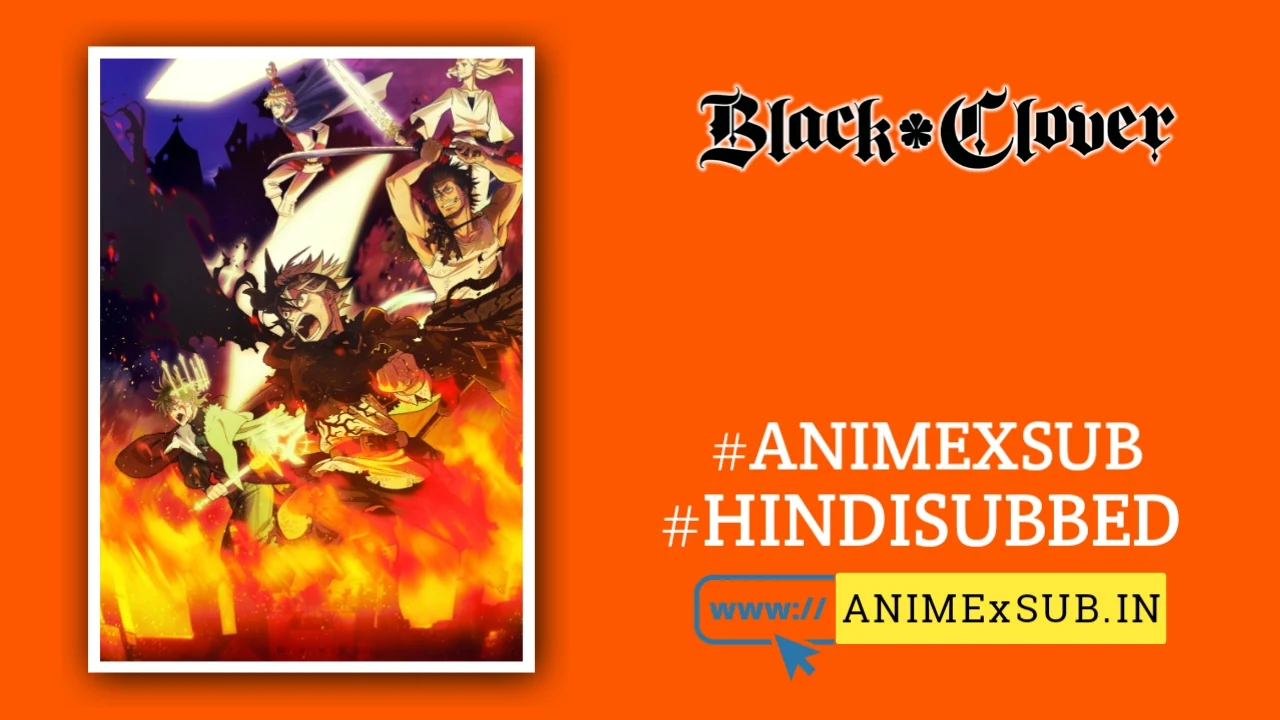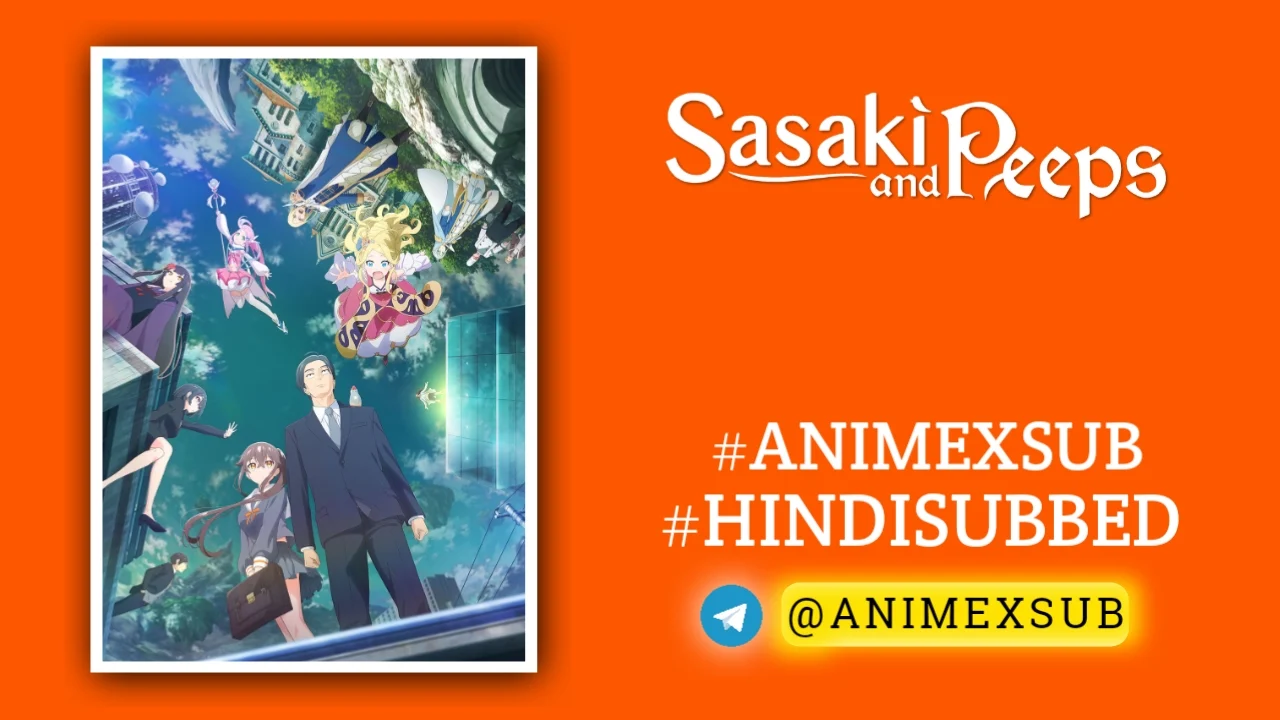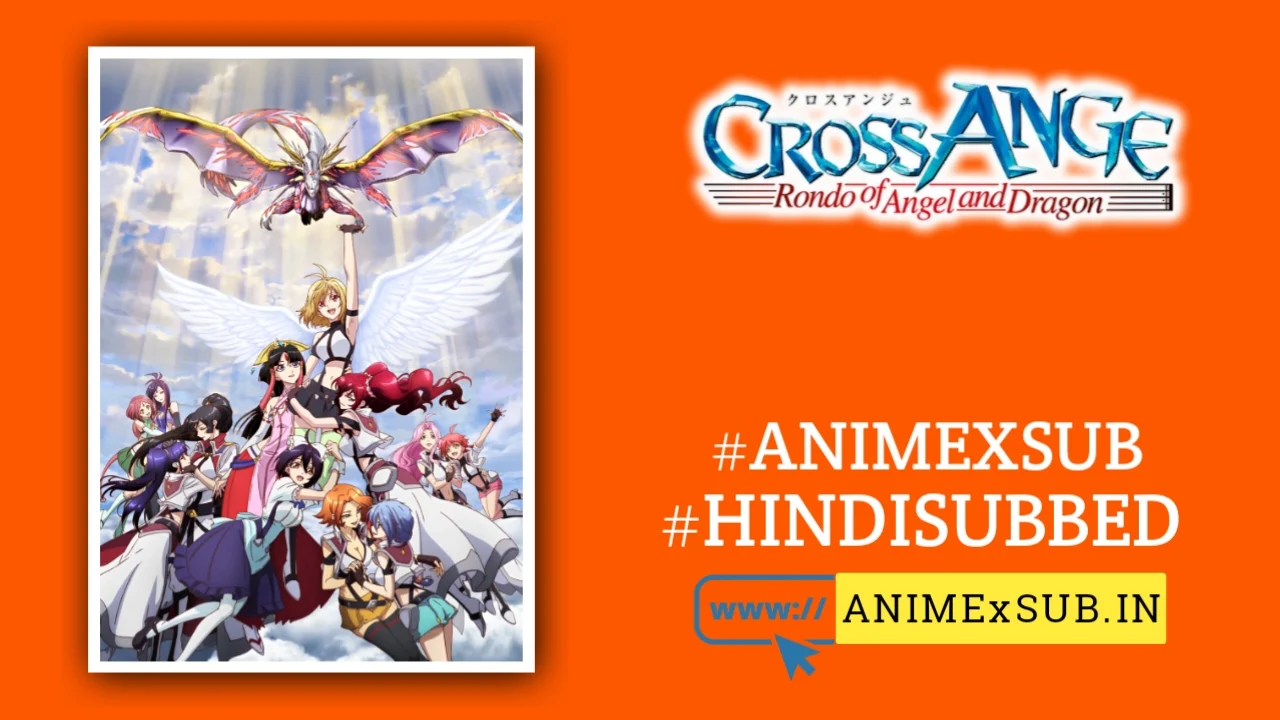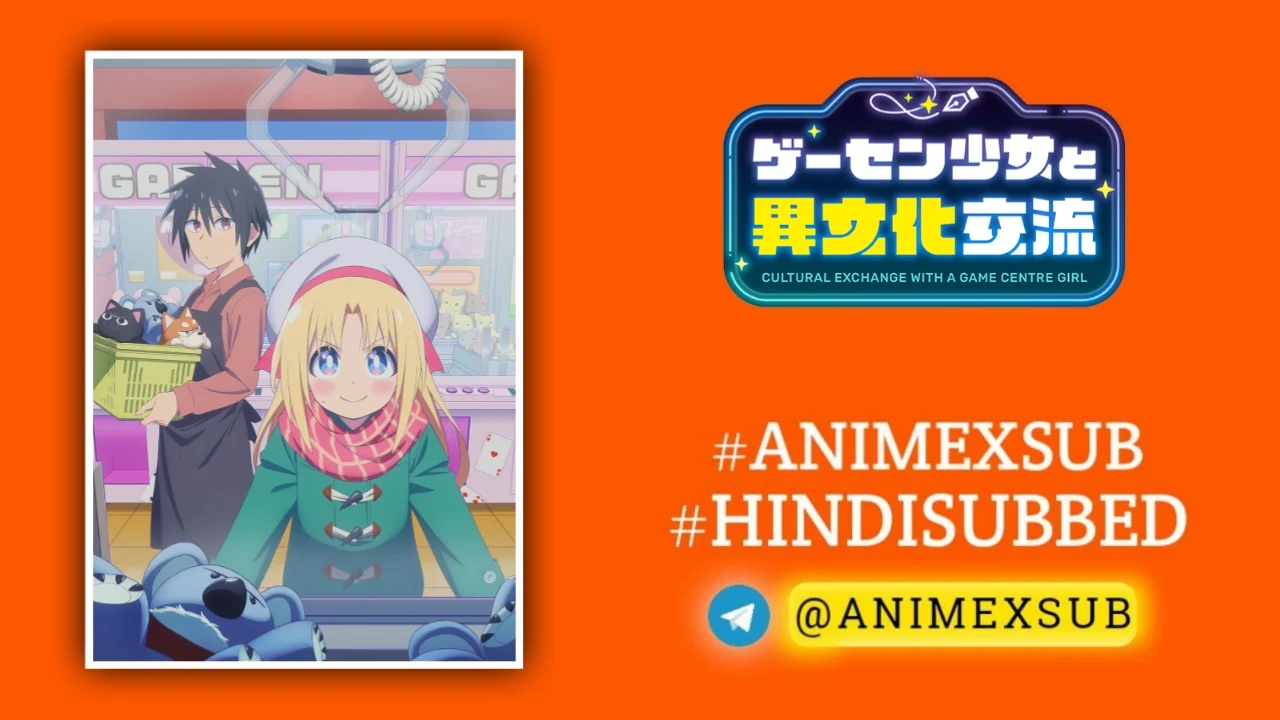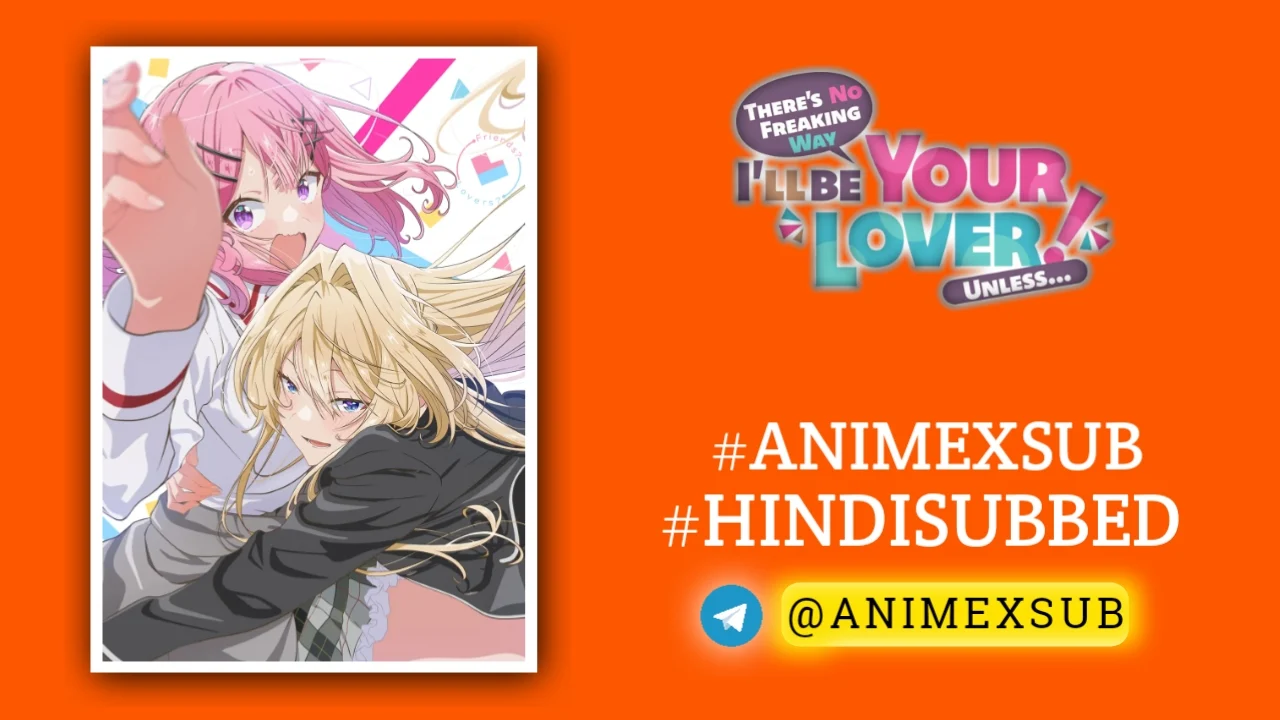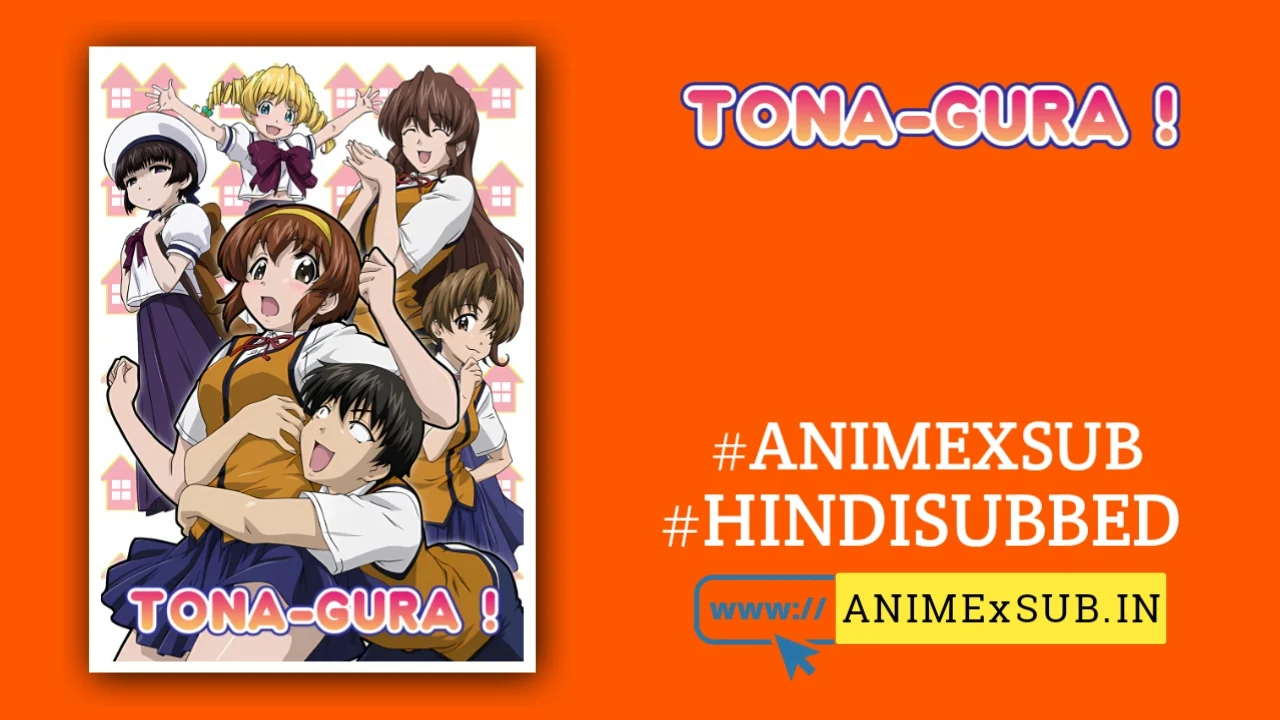
Tonagura! Season 1 Hindi Subbed [13/13] {Complete}
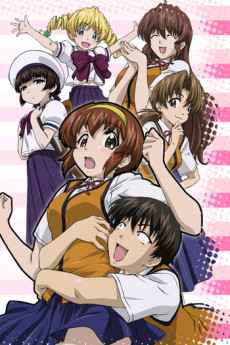
Tonagura!
Tonagura!Synopsis
Kazuki has been awaiting 10 years for the day when her neighbours moved back to their old house. She has a crush on Yuuji, whom she considers as her first love but to whom she never managed to express her feelings for him before they moved out. Yuuji often comes over to play with Kazuki, Kazuki's older sister Hatsune and Yuuji's sister Marie when they were kids. Her ideal depiction of Yuuji was soon shattered when he turned out more than she had expected, him acting all ecchi during their reunion. With their parents off in South America, both families must learn to live with each other and rekindle the childhood feelings they shared together. Things get even more crazy as they attend the same school. (Source: Anime News Network)
Characters
Episodes
How To Download Tutorial
Tonagura! Season 1: A Deep Dive into a Polarizing Ecchi Rom-Com
Tonagura! Season 1, a 2006 anime adaptation of the manga by Hidetaka Kakei, is a 13-episode ecchi romantic comedy that dives headfirst into the chaotic reunion of childhood friends. While it has a niche appeal for fans of the genre, its reliance on exaggerated tropes and uneven execution makes it a divisive watch. This article explores the show’s narrative, characters, themes, and reception with fresh insights, avoiding promotional fluff to deliver a critical, engaging analysis.
Plot Overview: A Childhood Crush Meets Teenage Hormones
The story centers on Kazuki Arisaka, a high school girl who’s been pining for her childhood friend Yuuji Kagura for a decade, ever since he moved away. Kazuki’s idealized memory of Yuuji as a kind, gentle boy is shattered when he returns as a shameless pervert with a knack for groping and crude behavior. Living next door again, the Kagura siblings (Yuuji and his sharp-shooting younger sister Marie) and the Arisaka sisters (Kazuki and her mischievous older sister Hatsune) navigate a whirlwind of comedic misunderstandings, romantic tension, and ecchi antics while attending the same school. With their parents conveniently absent in South America, the stage is set for unfiltered chaos.
The premise is simple: a classic “childhood friends reunited” setup with a heavy dose of fanservice. However, Tonagura! struggles to balance its romantic aspirations with its commitment to slapstick and ecchi humor, often prioritizing the latter at the expense of deeper storytelling. The plot rarely ventures beyond episodic gags, with Yuuji’s perversion and Kazuki’s violent reactions forming the core of most episodes.
Characters: A Mixed Bag of Tropes and Charm
- Kazuki Arisaka: The heart of the story, Kazuki is a sympathetic yet frustrating protagonist. Her unrequited crush on Yuuji drives the narrative, but her constant physical retaliation against his antics—while understandable—feels repetitive and sometimes unfair, as Yuuji’s behavior is often exaggerated for comedic effect. Her struggle to reconcile her idealized memories with Yuuji’s current self is relatable but underexplored.
- Yuuji Kagura: Yuuji is the quintessential “perverted male lead” of early 2000s ecchi anime. His transformation from a sweet kid to a hormone-driven teen is the show’s central conflict, but his lack of growth makes him a weak link. While occasional glimpses of his kinder side hint at depth, these moments are too fleeting to redeem his one-note characterization.
- Hatsune Arisaka: Kazuki’s older sister steals the show with her chaotic, sadistic energy. A cosplay enthusiast with a penchant for egging on Yuuji’s mischief, Hatsune’s unpredictable nature adds a layer of absurdity that elevates the comedy. Her dynamic with Kazuki is a highlight, blending sibling rivalry with genuine care.
- Marie Kagura: Yuuji’s younger sister, armed with a teddy bear-shaped airsoft gun, delivers “divine punishment” whenever Yuuji crosses the line. Her deadpan delivery and trigger-happy attitude make her a fan favorite, offering a refreshing counterpoint to the show’s fanservice-heavy tone.
The supporting cast, including classmates and teachers, fills out the school setting but rarely contributes meaningfully to the story. The show’s reliance on archetypal characters limits its emotional resonance, though Hatsune and Marie provide enough charisma to keep things entertaining.
Themes and Style: Ecchi Excess or Hidden Heart?
Tonagura! is unapologetically an ecchi anime, leaning heavily into fanservice with panty shots, groping incidents, and suggestive scenarios. This approach, while standard for the genre, often overshadows the show’s attempts at romance and comedy. The central theme—reconciling childhood memories with present realities—has potential but is underdeveloped, as the narrative prioritizes gags over emotional payoff. Kazuki’s internal conflict about her feelings for Yuuji could have been a compelling exploration of nostalgia and growth, but the show rarely digs deeper than surface-level misunderstandings.
Visually, Tonagura! is a product of its time. The animation, handled by Daume, is above average for a 2006 series, with vibrant colors and smooth character designs that hold up surprisingly well. The art style captures the manga’s playful tone, though some scenes feel dated due to repetitive slapstick sequences. The soundtrack is forgettable, with generic opening and ending themes that don’t leave a lasting impression.
Reception: A Divisive Experience
Tonagura! has a polarizing reputation among viewers. Fans of ecchi rom-coms appreciate its lighthearted humor and charismatic side characters, with some praising the chemistry between the Arisaka and Kagura families. Marie’s airsoft antics and Hatsune’s cosplay shenanigans are often cited as highlights, injecting energy into otherwise formulaic episodes. However, critics slam the show for its lack of originality, shallow plot, and unsatisfying ending. The finale, in particular, frustrates viewers by leaving Kazuki and Yuuji’s relationship ambiguous, with no clear resolution to the romantic tension.
On platforms like MyAnimeList, reviews range from lukewarm to scathing. One user called it “a decent conclusion but a simple one that left too much unresolved,” while another dismissed it as “rubbish” after two episodes, comparing it unfavorably to Golden Boy for its crude humor and lackluster characters. The show’s 5/10 plot rating reflects its struggle to stand out in a crowded genre.
What Sets It Apart (or Doesn’t)?
Tonagura! doesn’t reinvent the ecchi rom-com wheel, and it’s often overshadowed by contemporaries like Toradora! or Golden Boy. Its unique hook—the contrast between Kazuki’s nostalgic crush and Yuuji’s perverted reality—loses steam due to repetitive gags and a lack of character development. However, the sibling dynamics, particularly between Kazuki and Hatsune, offer a fresh twist, as does Marie’s vigilante-style enforcement of boundaries. These elements give the show a quirky charm that resonates with viewers who enjoy chaotic, trope-heavy anime.
Compared to other 2006 anime, Tonagura! feels like a time capsule of early 2000s ecchi trends, for better or worse. It lacks the narrative ambition of The Melancholy of Haruhi Suzumiya or the emotional depth of Honey and Clover, both released the same year. Yet, for fans seeking a guilty pleasure with no pretense of grandeur, it delivers enough laughs and fanservice to fill a lazy afternoon.
Rewatchability and Legacy
With only 13 episodes, Tonagura! is a quick watch, but its rewatchability is low. The repetitive humor and lack of a satisfying conclusion make it hard to justify a second viewing unless you’re a diehard fan of ecchi or the manga. The absence of a second season, despite setup for further stories, has left the series largely forgotten, with no OVAs or sequels to tie up loose ends. Its legacy lies in its niche appeal, appealing to a specific audience that enjoys unpolished, trope-driven rom-coms.
Final Thoughts
Tonagura! Season 1 is a flawed but occasionally charming entry in the ecchi rom-com genre. Its strengths—lively side characters like Hatsune and Marie, a relatable premise, and decent animation—are weighed down by a shallow plot, overreliance on fanservice, and an unsatisfying ending. It’s not a “next-level” anime by any stretch, but it offers a nostalgic glimpse into a bygone era of anime tropes. If you’re new to ecchi or seeking a lighthearted throwback, it might entertain, but don’t expect a masterpiece. For better-executed rom-coms, Toradora! or School Rumble are stronger alternatives.

